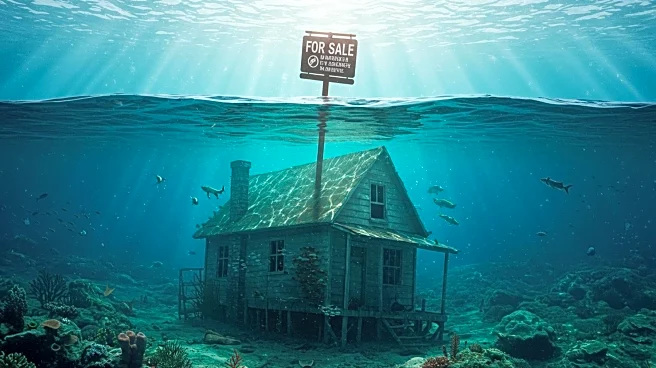What is the story about?
What's Happening?
In the current real estate market, some homeowners in Texas and Florida are experiencing underwater mortgages, where the value of their home is less than what they owe. This situation is reminiscent of the mid-2000s housing bubble but is more localized and driven by unique market forces. Unlike the widespread crisis of the past, today's housing landscape differs significantly in terms of equity levels, lending standards, and economic conditions.
Why It's Important?
Negative equity can limit homeowners' options, affecting their financial stability and ability to move or refinance. However, changes in lending standards post-2008 have resulted in borrowers with higher credit scores and larger down payments, reducing the risk of widespread foreclosures. Low mortgage rates and a stable economy contribute to a less severe impact of negative equity compared to the previous housing crash.
What's Next?
Homeowners in negative equity situations should focus on building equity, monitoring local market trends, and considering value-boosting improvements. Exploring options like loan recasting or strategic selling strategies may help mitigate the impact of underwater mortgages. Real estate professionals and policymakers may work to support affected homeowners and prevent broader market disruptions.

















